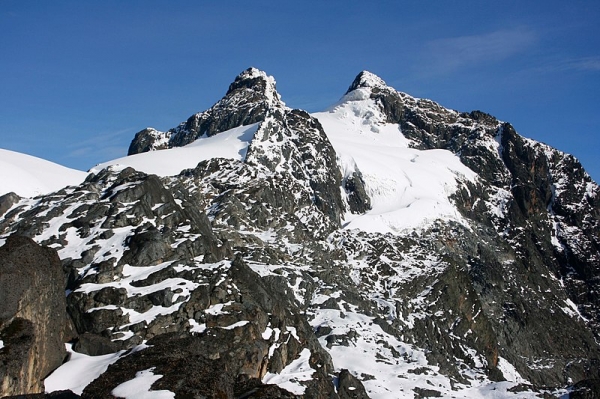Enock Bwambale stopped at the lip of the dying glacier, its blunted nose arcing steeply down to scoured rocks, then shouted up to his fellow guide Uziah Kule that the ice was too sheer to descend on foot. Hacking his axe into the crusty surface, he twisted in an ice screw so I could rappel down the stubby face of the Stanley Glacier in Uganda’s Rwenzori Mountains National Park, a UNESCO World Heritage Site on the border with the Democratic Republic of the Congo.
Safely down, our small group took in the view of the heights of Mount Stanley: Margherita Peak — at over 16,700 feet (5,100 meters), the third highest point in Africa — and Alexandra Peak, between which hides the Stanley Glacier. I swung my camera around and tried to match a photo by Vittorio Sella, who had documented the summits of the surreal Mountains of the Moon during the first successful European summit attempt, in 1906. But an equivalent contemporary shot was impossible: Sella had taken his photograph from atop a healthy glacier that had been hundreds of feet higher than my head.
“Up there nowadays, there’s no glacier,” said Kule. “The glacier we only get it in the valley here.” Worldwide, climate change is causing glaciers to retreat. But African glaciers, which all lie within within a day’s drive of the equator, are melting faster than the global average. Since 1906, more than 80 percent of the Rwenzoris’ ice has melted, and UNESCO recently reported that a third of the 50 World Heritage sites that contain glaciers, including the Rwenzoris, will disappear by 2050 no matter what actions are taken to slow global warming. Some scientists predict that Uganda’s glaciers could be gone even sooner: within a decade.
Read more at Yale Environment 360
Photo Credit: Byekwaso Blasio via Wikimedia Commons


